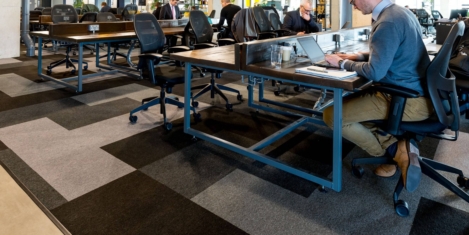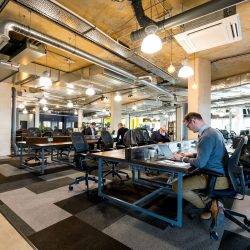July 17, 2018
The talents of older people are going to waste because of discrimnation, claims government report
 The talents of more than a million people aged over 50 who want to work are being wasted because of discrimination, bias and outdated employment practices, claims a new report from the UK government. The report from The Women and Equalities Committee also concludes that Government and the Equality and Human Rights Commission (EHRC) are failing to enforce the law on age discrimination and must be clearer that prejudice, unconscious bias and casual ageism in the workplace are all unlawful under the Equality Act 2010. Although the Committee concludes that the Government’s employer-led approach has its advantages, it does not present a strong enough challenge to discriminatory practices or attitudes.
The talents of more than a million people aged over 50 who want to work are being wasted because of discrimination, bias and outdated employment practices, claims a new report from the UK government. The report from The Women and Equalities Committee also concludes that Government and the Equality and Human Rights Commission (EHRC) are failing to enforce the law on age discrimination and must be clearer that prejudice, unconscious bias and casual ageism in the workplace are all unlawful under the Equality Act 2010. Although the Committee concludes that the Government’s employer-led approach has its advantages, it does not present a strong enough challenge to discriminatory practices or attitudes.



















 Improved living standards, deflating pension pots and legal protection against age discrimination have all helped to nudge up the retirement age. The result is that for the first time since the Industrial Revolution five generations of employees are now working side by side. According to a new survey, two thirds of organisations (66 per cent) say that an age diverse workforce helped the company to have a more comprehensive skillset and knowledge base and more than seven in ten (71 per cent) felt that a multi-generational workforce brought contrasting views to their organisation. However, in the YouGov survey of middle market businesses commissioned by RSM, four in ten companies (41 per cent) said that a multi-generational workforce also increased the risk of conflict in the workplace.
Improved living standards, deflating pension pots and legal protection against age discrimination have all helped to nudge up the retirement age. The result is that for the first time since the Industrial Revolution five generations of employees are now working side by side. According to a new survey, two thirds of organisations (66 per cent) say that an age diverse workforce helped the company to have a more comprehensive skillset and knowledge base and more than seven in ten (71 per cent) felt that a multi-generational workforce brought contrasting views to their organisation. However, in the YouGov survey of middle market businesses commissioned by RSM, four in ten companies (41 per cent) said that a multi-generational workforce also increased the risk of conflict in the workplace. 
















July 11, 2018
Challenging some of the most commonly held misconceptions about coworking
by John Williams • Comment, Coworking
(more…)